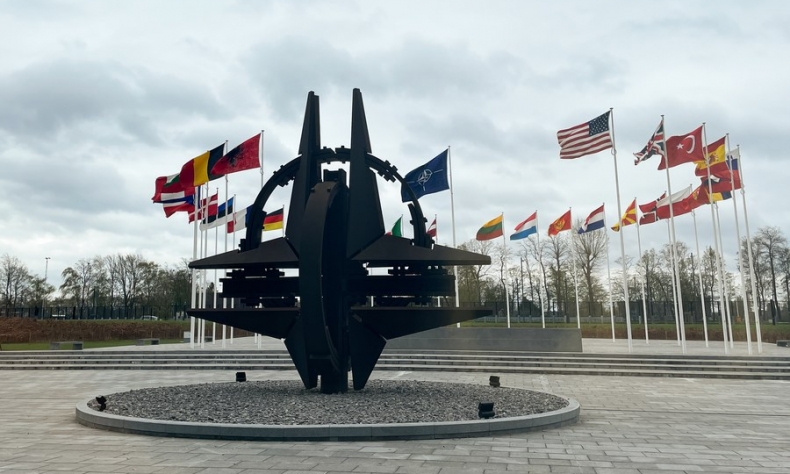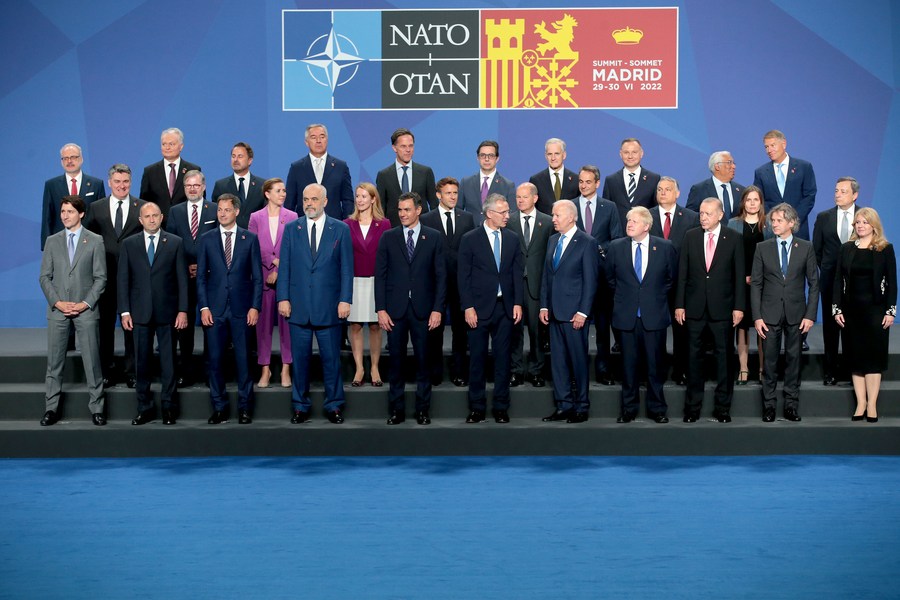Why NATO’s Decision to Label China a ‘Systemic Challenge’ Is Absurd

China does not present a threat or challenge to NATO; it does not see itself as a competitor and does not seek to build any kind of alliance bloc.
The North Atlantic Treaty Organization (NATO) leaders’ summit concluded last week in Madrid, Spain, during an extraordinary moment of enhanced global tensions. The organization, founded in 1949, describes itself as a “defensive alliance.”
Over the past few years, the alliance has taken on an ideological character, concerned not only with common defense but also with exerting American hegemony. In conjunction with this evolution of NATO’s purpose, the “North Atlantic” aspect has become increasingly questionable as it has also sought to concern itself with other areas of the globe.
At its three-day summit, NATO decided for the first time to label China as a “systemic challenge” as part of its new strategy concept, making explicit anti-China remarks.
The weaponization of NATO is, ironically, a stark contrast to the legacy of Donald Trump. He advocated a concept of “America First” based upon pure national interest and a realist foreign policy. Biden, however, is entirely different. Unlike Trump, the current administration has espoused a highly ideological foreign policy to consolidate American hegemony, more forcibly dividing the world into competing blocs.

To do this, the Biden administration has pursued an approach of “mini-lateralism” against China. It has created multiple small anti-China coalitions targeting the country for various purposes. This has included the Quadrilateral Security Dialogue (Quad), the Indo-Pacific Economic Framework, the newly announced “Partnership for a Blue Pacific,” and the more overt weaponization of the G7 against China, as was clear from the latest summit. This coincides with the all-out doubling down on NATO, pursuing its expansion and steering more overtly towards the “China challenge,” despite its name being a North Atlantic security mechanism.
It is ironic that given these policies, the Biden administration is more responsible for destabilizing the global environment than Trump. Biden’s zero-sum ideological crusading (which the preceding administration largely avoided) has led to an inevitable path toward conflict and arms races on many fronts. There is no pragmatism or ability to compromise in Biden’s foreign policy doctrine whatsoever. As the U.S. vows to dominate the so-called Indo-Pacific, it is simultaneously obsessed with doing the same thing in Europe.
It is clear that the U.S. is overtly expanding its military presence worldwide, and the sole purpose is hegemony. As a result, the world has been dragged into a dangerous and destabilizing period, and the foundations of peace, unity, and multilateralism have been undermined in ideological division, crusading, and power politics.
China does not present a threat or challenge to NATO; it does not see itself as a competitor and does not seek to build any kind of alliance bloc. However, it has become increasingly targeted and stigmatized by the U.S., obsessed with containing it. There are grave uncertainties going forward, and one hopes reason can eventually prevail.
 Facebook
Facebook
 Twitter
Twitter
 Linkedin
Linkedin
 Google +
Google +







